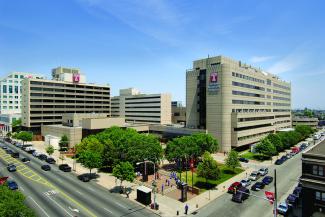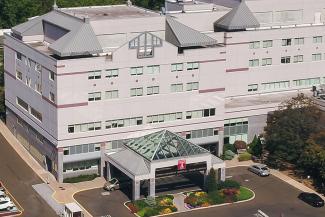Left untreated, a diseased, narrowed, leaky or damaged aortic valve (the valve through which blood flows from the heart to the rest of the body) can result in overwork on the rest of the heart, which may lead to heart failure or other issues. If repair options are not feasible, the valve may need to be replaced. Your physician will provide details about the benefits of repair versus replacement and the trade offs between mechanical and tissue (biologic or bioprosthetic) valves.
Why Temple?
Temple’s cardiovascular surgeons and interventional cardiologists have extensive experience performing aortic valve procedures, including minimally invasive approaches for high-risk patients. Temple offers a full range of options for aortic valve replacement, including specialized procedures such as:
- Ross Switch Procedure: Some younger patients with severe aortic valve problems may be eligible for a Ross procedure, in which the patient’s aortic valve is removed and replaced with another of the patient’s own heart valves—the pulmonary valve. In turn, the patient’s pulmonary valve is replaced by a pulmonary valve from a donor heart. This may allow the patient to be more active and reduce the need for certain medications.
- Transcatheter Aortic Valve Replacement: Valve replacement is usually done as a traditional surgical procedure; however, Temple also offers a minimally invasive option called transcatheter aortic valve replacement TAVR) for patients with a narrowed aortic valve whose health does not allow for open surgery.
- Homograft Aortic Root and Aortic Valve Procedures: Temple also performs aortic root and aortic valve transplants using cadaveric human (homograft) aortic root or aortic valve tissue. Using human valve or root tissue can be beneficial in specific complex aortic conditions such as endocarditis.
Ready for an Appointment?
Find a doctor near you, request an appointment, or call 800-TEMPLE-MED (800-836-7536) today.

